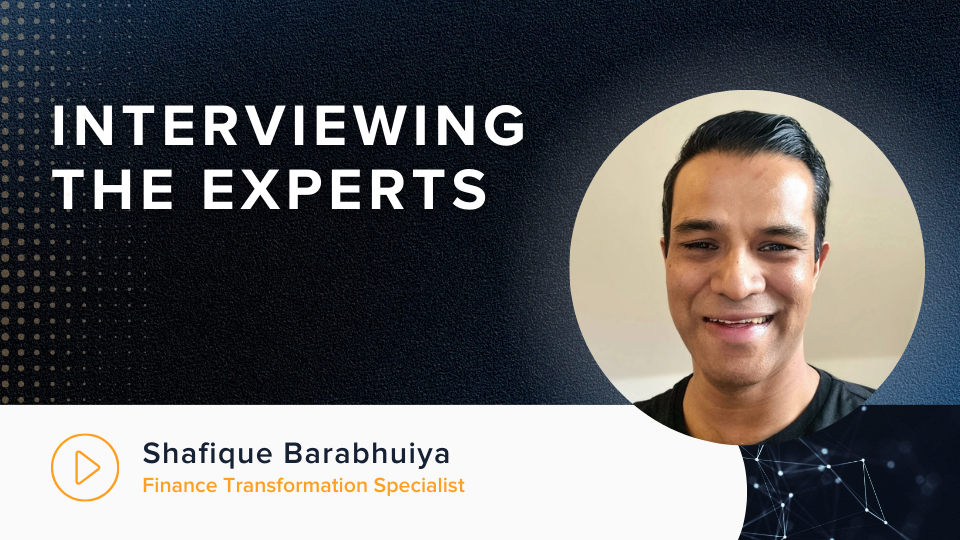
As a candidate, interviewing for a job can be a difficult task, but we don’t often stop to think about the challenges you face as an interviewer.
This got us thinking - is being a good interviewer something you’re born with? Or is it a case of practice makes perfect?
In the Recruitment industry, there’s usually a lot of hustle and bustle in the office.
You often hear the consultants talking to each other about their candidates' recent interviews. Our candidates often give mixed feedback about the interview processes they encounter. Some report that the process was well conducted, and they could not fault it. However, others have felt that there were areas for improvement.

As Recruiters, we spend our time prepping the candidates on how to interview well, but do we spend enough time giving feedback to our clients to help them reach their full potential as a new employer?
Recruitment can be a tough and time-consuming process for employers, so, we are here to help. We’ve compiled our top tips for interviewers into this bite-sized article, to help you be the best. The great thing about it is that you can bookmark it and come back to it as often as you like!
In order to simplify these tips, We have divided them into two categories: sticking points we face during the process, and what the interviewer should try and learn from the candidate.
We spoke with Chris Zinonos, our Head of SAP Recruitment, to see if there were any insights, he would like to pass them on to you as an interviewer.
Sticking points faced during the interview process
So, what do we mean by “sticking points”? These are obstacles that stop you from reaching your desired goal. In this case, this would be something that stopped the candidate from reaching a subsequent interview or job offer stage. Based on feedback we have received from candidates after an interview, and complications our consultants have faced during the process, these are the most common sticking points you might face as an interviewer.
Make the candidate feel comfortable enough so they can express themselves freely
Take yourself back to the last time you interviewed for a role you really wanted to get. How did you feel? Nervous? Wanting to impress the interviewer? Your brain so full of research and answers you prepared that there’s not much room for anything else, including small talk? Now, how would you feel if the person interviewing you was a little standoffish or difficult to talk to? Your stress levels would increase even further, and most likely affect the way you interview.
Try to put yourself in the candidate's shoes and treat them how you would like to be treated if you were being interviewed. Put them at ease and encourage them to be themselves. This will also be great for getting a feel of whether they’re a good fit for the role, the team, and the organisation. You want the candidate to be as true to themselves as possible.
Overcomplicating the process with unnecessary interview stages
With SAP talent in such high demand now, you can’t afford to lose your ideal candidate.
When you are sure of a candidate and see them fitting into your organisation, don’t stick to the box-ticking exercises and elongate the process unnecessarily. Chances are the candidate has other processes in the background that could be going at a faster pace than yours, do you really want to lose them to a competitor?
Inviting the Candidate for interview but not talking about the job at hand
When you attend an interview, you expect to talk about the job you are interviewing for, right? But we have received feedback that sometimes this isn’t the case; interviewers have occasionally skirted around the responsibilities of the role. This might result in candidates having inaccurate expectations of a job role, with potential repercussions further down the line.
Make sure the roles and responsibilities are set out clearly and concisely from the start. This can save you from running into problems in the future.
Giving the candidate the opportunity to ask questions
You'd be surprised at how many interviewers don’t leave time for questions at the end, which seems counterintuitive. Why would you not give your perspective employee a chance to ask questions? This is a great opportunity for the candidate to find out more about the role that you may not have gone in to or ask about the culture of your company – all things that could sway their decision whether to accept an offer or not.
It will also be a great opportunity for you to gauge their interest and commitment to the role and your company. Questions people ask can really give you an insight into what type of person they are, for example, they may ask you how you got into the company and your journey. This shows a genuine interest in you and your company, it could also be an indicator of longevity and an interest in progression.
Give candidates an opportunity to ask questions!
Not communicating closely with the Recruiter
Recruiters are not just there to advise the candidates; any good recruiter will want to help their clients reach their full potential as well. They are there to be used, and their insight and knowledge is invaluable, so use them to your advantage.
Here at Focus on SAP, before a candidate is submitted for your vacancy, we conduct what we call a “qualification” call. This is a pre-interview to ensure that they are the right fit for your organisation, but we delve a lot deeper into the candidates' wants and needs. So instead of just asking about A and B, we want to know about D, E and F. We spend time recognising what is motivating them to move forward in their career, and what the most important factors to them in their new position would be.
Take advantage of this and speak to your Recruiter to really understand why the candidate wants to move on. I know what you’re thinking - “but I’ll just ask the candidate in their interview”. This is fair enough, but will the candidate open up to you as much as they opened up to the Recruiter? During my career as a Recruitment Consultant, there were times when candidates spoke to me about things outside of a professional capacity – I remember one candidate going into great detail about his family problems. Sometimes candidates see Recruiters as more than just people who are finding them a job; they build a genuine connection with them. So, they may tell the Recruiter more than they would an interviewer.

What you need to find out from the candidate
Skill Suitability
Really explore the abilities and skills of the candidate. Look further than their CV. We advise candidates to put as much relevant information on their CV as possible, but we’re all human, so they are bound to forget things. Really challenge them and gain enough information to gauge their suitability.
Situational overview/current company/role responsibilities
You want to find out more than if they can just do the job you are hiring for. Ask them about their current role – what they do on a day-to-day basis, what are their challenges and why they want to leave their current company and position.
How they talk about their current role and company can help give you an insight into the sort of person they are. How do they express their thoughts on these subjects?
Flagship Projects
Talk to the candidate about what they are proud of and what they have achieved. Are there any significant projects they have been part of? What was their role within that project?
This will give you an insight into how they rate their work and their processes. It will also help you gauge what type of person they may be. Many of us find it difficult to “big ourselves up”, it could show you how confident the candidate is.
How do they handle adversity?
Let’s be honest, most people say what they think interviewers want to hear. We’ve all been there! When asking about times they reacted a particular way in a difficult situation, follow it up with “why”. This will encourage the candidate to dig deeper into how they would handle the circumstance.
Cultural fit etc
By the end of the interview process, you want to be 100% sure that the candidate is the right fit for your company, but you also want to consider if you are the right fit for them. The last thing you want is to go all the way through the process, hire them and then they leave due to you not being the right fit for them.
Where appropriate, try to gauge whether they would fit personality-wise within the team, and don’t be afraid to ask about their experiences of company culture previously. You might find that there are non-negotiable factors in play that won’t suit them, or that there are aspects of their personality that might negatively affect your current team. If you don’t delve deep enough, you won’t find out.

So, there you have it, 10 tips on interviewing SAP talent, we hope you have found this insightful. If you’re an organisation struggling to find the right candidates and would like a dedicated consultant to help you throughout the process, give Focus On SAP a call today.



